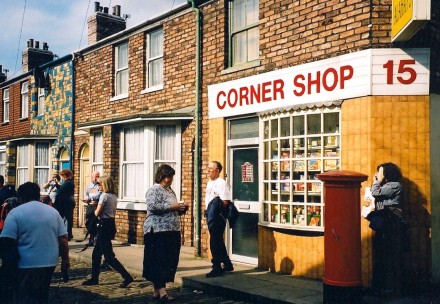
This month saw the official launch of SME4Labour – the new organisation building links between the Labour Party and small and medium-sized enterprises, micro businesses, start-ups and the self-employed.
Formed by a group of small business owners, freelancers and people with an active policy interest in SMEs, we were delighted last week to hold our first parliamentary reception. It was hosted by the Shadow Minister for Small Business, Bill Esterson and attended by Jeremy Corbyn, Tom Watson, John McDonnell, Angela Eagle, Seema Malhotra, Yvette Cooper, Chuka Umunna and more. The queue was so big that many people couldn’t get in the room.
It just goes to show that what we hear in the Tory media is just plain wrong – Labour is a passionate advocate of business. Labour representatives up and down the country work hard to support the small businesses and family enterprises that are the foundation blocks of our communities. In turn, when Labour wins it is often because the SME community which has supported us.
SME4Labour exists because there has been a historical gap within the Labour movement in representing the SME community. Yes, we have groups of successful entrepreneurs and committed donors – who which are important to our party and its representative nature – and the Labour Finance and Industry Group (Labour Businesss) has done a great job to influence policy across finance, enterprise and industry.
Yet there has been no Labour-affiliated entity to specifically represent the 50% of the private sector that does not comprise large or multinational corporations. Until now.
SME4Labour represents the 99.9% of Britain’s 5.4 million businesses which employ less than 250 people. We represent the 15.6 million people employed by SMEs, who make up 60% of all private sector employment in the UK. And we speak for businesses with a collective turnover of £1.8 trillion, according to the Federation of Small Businesses.
But it’s not just about numbers, it’s also about us as individuals. Many Labour members and voters will own, work for or be related to someone who runs an SME. Others will be self-employed or consider themselves an entrepreneur. Not only are SMEs a large part of the economy – behind them are real people with jobs, homes and communities.
Most SMEs are not the tax domicile shifting, zero-hours contracts issuing or fat cat led behemoths that Labour rightly tackles. They are the companies and individuals that innovate and create jobs. They are the future success stories that make our country an exciting place to work and invest.
SMEs run local events, sponsor school competitions and organise street festivals. Often they do such activities not with profit in mind but because they are active citizens and want to contribute to the good of the community. They are interested in localism and so they work together, form partnerships and give each other a helping hand through reciprocity.
Enterprise, community, localism – these are the values that SMEs represent. And they are also Labour values. It is why we in SME4Labour are proud to be SMEs and proud to be Labour.
It is a great Labour tradition to speak up for people who don’t have a voice. SME4Labour has been formed to speak up for the small businesses and self-employed people that haven’t been represented within our movement to date. So what next?
Our plan is to talk to SME owners and self-employed people and listen to their concerns. We will build a network of SMEs across the UK who can help us influence party policy. We will then launch policy consultations, issue reports and recommend practical and achievable policies which support this important part of the economy while promoting Labour values.
In doing so, we will play our part in building a movement for change and electing a Labour government at the next general election.
Ibrahim Dogus is Chair of SME4Labour




More from LabourList
‘As the Prime Minister travels to China, he carriers a moral responsibility’
‘In a fragmented world, dialogue makes sense’
Elections, attacking the Greens and work with students – Ann Black’s NEC report